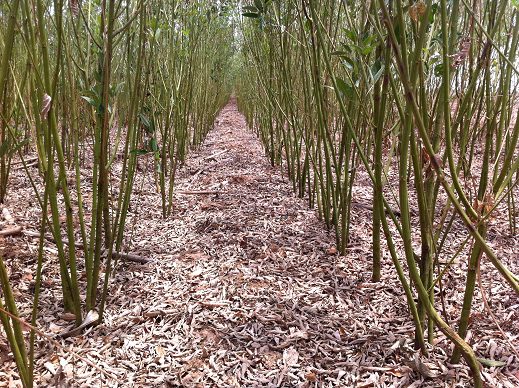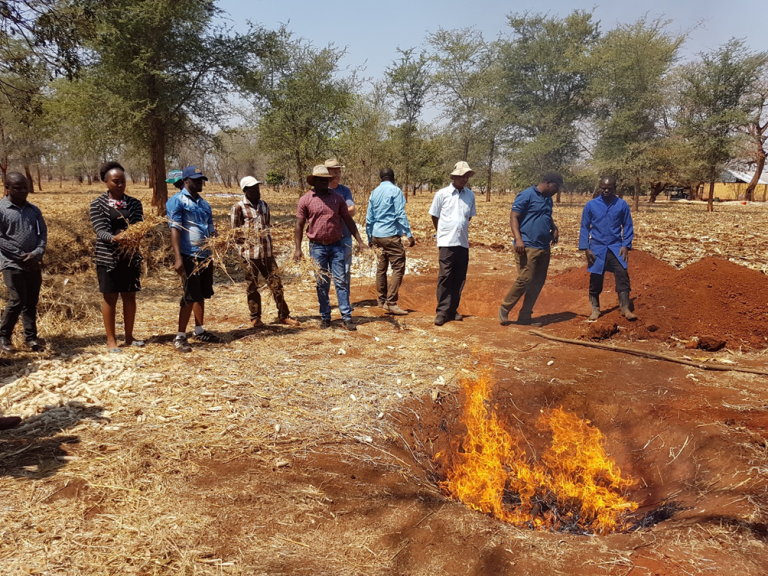CFU has over the past 20 years promoted and trained small holders farmers to practice Conservation Farming, training an average of over 170,000 farmers per year for more than a decade now.
In the quest to have more small holder farmers diversify their cropping systems for resilience in adverse climatic conditions, the CFU partnered in 2019 with Menon Economics, the Norwegian Geotechnical Institution (NGI) and Norwegian University of Life Sciences (NMBU) to develop and implement the ClimChar Project. The project is working with 1,266 farmers in four districts of Zambia; Kaoma, Choma, Mkushi and Chipata, promoting an environmentally sustainable value chain of biochar-pigeon pea agroforestry in combination with Conservation Farming-Minimum Tillage (CF MT).
The CFU has long been involved with NMBU and NGI regarding Biochar research, establishing the benefits that Biochar can add to crops grown under CF in different soil zones of Zambia.(LINK).
Having established that real benefits exist, it was necessary to examine how biochar feedstock could be generated in a way that did not encourage deforestation any further. Pigeon Pea cultivation is an answer to that, as the legume benefits the soil, generates an edible cash crop and can also develop woody enough biomass to make a workable char.
The ClimChar project has trained and recruited the 1,266 farmers to participate as pigeon peas growers, using Conservation Farming/Minimum Tillage approaches. The farmers will sell the pigeon peas grain for extra income and use the biomass to make biochar which they will later apply back for soil amendments. The first stand of pigeon peas is coming along nicely.

Pigeon Peas

Training of staff on how to make biochar in a simple dug kiln
One Response